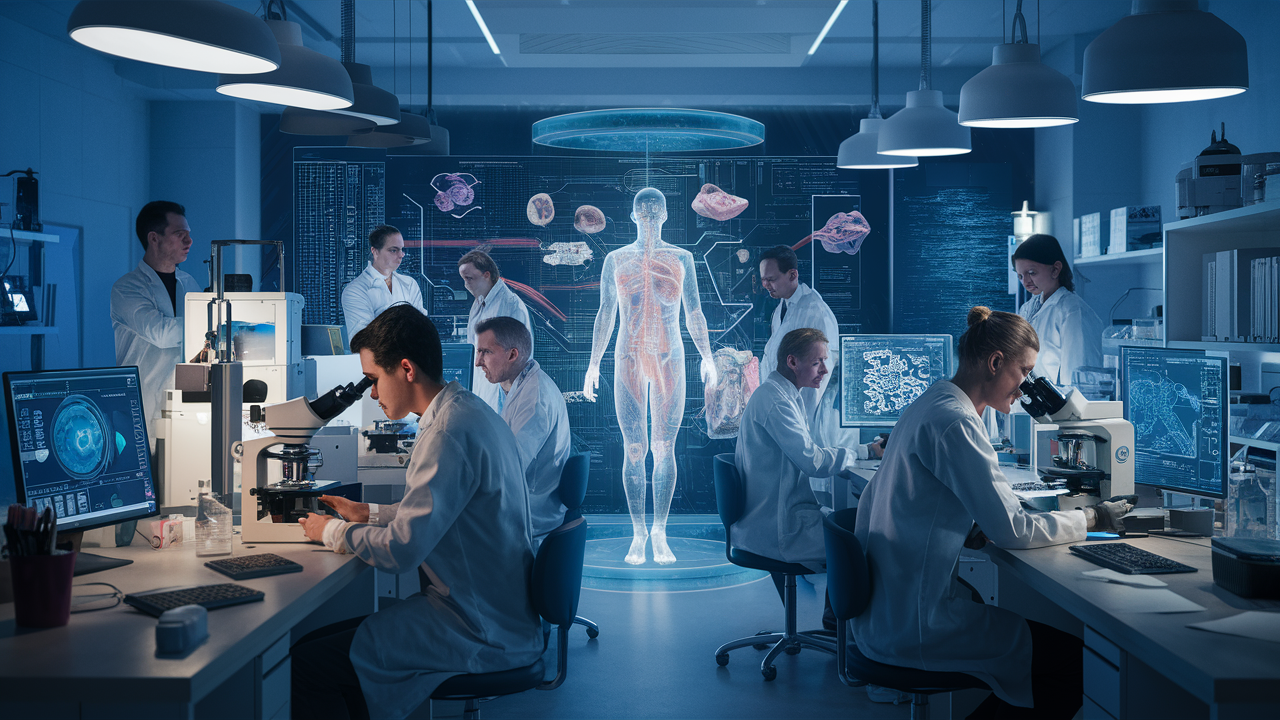Key Takeaways:
- Advances in biomedical technology are rapidly transforming healthcare.
- Innovative solutions such as AI, genomics, and wearable technology significantly impact disease prevention and treatment.
- Personalized medicine and remote healthcare are becoming increasingly prominent.
- Ethical considerations are essential in the development and application of new biomedical technologies.
Table of Contents:
- Introduction to Biomedical Breakthroughs
- AI in Healthcare
- Genomics and Personalized Medicine
- The Rise of Wearable Technology
- Expanding Remote Healthcare
- Ethical Considerations in Biomedical Technology
- Conclusion
Introduction to Biomedical Breakthroughs
Biomedical technology is rapidly changing the landscape of healthcare. From disease prevention to innovative treatments, new advancements continually push the boundaries of what is medically possible. It’s important to note the significant contributions of biomedical engineering technicians in Houston, TX, who are pivotal in implementing these cutting-edge technologies in healthcare systems. By leveraging their expertise, hospitals and clinics can ensure that the latest technological advancements are available and effectively utilized to improve patient care.
Understanding these innovations is crucial for healthcare professionals and the general public. These advancements don’t just enhance the quality of care; they also ensure that medical facilities are equipped to meet the evolving needs of patients effectively. One of the critical areas of focus is professionals such as biomedical engineering technicians Houston TX, who play a vital role in maintaining and optimizing medical equipment essential for modern treatments. These technicians are the unsung heroes, working behind the scenes to ensure medical equipment functions correctly, enabling healthcare providers to offer timely and effective treatments.
AI in Healthcare
Artificial intelligence (AI) revolutionizes the medical field by enabling advanced diagnostic tools and treatment planning. AI algorithms can analyze vast amounts of data to identify patterns that would be impossible for humans to detect. This can lead to early diagnosis and more effective treatment strategies. AI’s ability to swiftly process and interpret complex data sets makes it an invaluable tool in modern medicine, offering capabilities that significantly enhance diagnostic accuracy and treatment efficacy.
For example, AI is being used to improve medical imaging techniques by enhancing the accuracy of detecting conditions like cancer. Traditional diagnostic methods often rely heavily on the skill and expertise of individual practitioners, which can lead to variability in diagnosis. By providing faster and more precise results, AI drastically reduces the time from diagnosis to treatment. This improvement accelerates the diagnostic process and ensures patients receive appropriate care much sooner, potentially saving lives.
Genomics and Personalized Medicine
The field of genomics is unlocking new potentials in personalized medicine. By examining an individual’s genetic makeup, healthcare providers can tailor more effective treatments with fewer side effects. Personalized medicine aims to move away from the one-size-fits-all approach in healthcare and instead offer customized solutions that align with a patient’s genetic profile.
Genomic research is paving the way for treatments tailored to the individual’s unique genetic code. This is particularly beneficial for complex diseases such as cancer, where personalized treatment plans can significantly increase the chances of success. For instance, pharmacogenomics, a branch of genomic research, explores how genes affect a person’s drug response. This allows doctors to prescribe medications most likely to work for a specific patient based on their genetic profile, thereby increasing treatment efficacy and reducing adverse drug reactions.
The Rise of Wearable Technology
Wearable technology has become an integral part of modern healthcare. Devices such as smartwatches and fitness trackers are not only popular among fitness enthusiasts but are also being used for medical monitoring. These devices can track vital signs in real time, providing valuable data for patients and healthcare providers. The continuous flow of data from these devices helps in the early detection of possible health issues and facilitates timely medical intervention.
Wearable technology is essential in detecting early warning signs of health issues and enabling continuous health tracking. For instance, these devices can monitor heart rate, sleep patterns, and activity levels, providing insights that can prevent chronic diseases from developing. Moreover, integrating wearable technology with mobile health applications allows users to have personalized health information at their fingertips, encouraging more proactive health management. This empowerment can lead to improved health outcomes and a better understanding of an individual’s health trends over time.
Expanding Remote Healthcare
Remote healthcare has gained substantial attention, especially following the global pandemic. Telemedicine and remote monitoring allow patients to receive care without visiting a healthcare facility. This is particularly beneficial for individuals in rural or underserved areas. With the aid of remote healthcare technologies, geographical barriers to accessing medical services are being systematically dismantled, making quality healthcare more universally accessible.
Remote healthcare also facilitates continuous care for chronic conditions, making it easier for patients to manage their health from home. This technological advancement is convenient and reduces the risk of exposure to infectious diseases. For patients with chronic illnesses, regular monitoring and timely check-ups are crucial. Remote healthcare solutions, such as telemedicine consultations and home monitoring devices, ensure that patients receive ongoing medical support without frequent hospital visits, enhancing quality of life and reducing healthcare costs.
Ethical Considerations in Biomedical Technology
As biomedical technology advances, it is crucial to address the ethical implications. This includes ensuring patient privacy, obtaining informed consent, and preventing misuse of genetic information. Ethical considerations must be at the forefront of technological innovation to ensure that advancements benefit society. Without a robust ethical framework, technologies designed to improve health outcomes could inadvertently cause harm or exacerbate existing inequalities.
Researchers and policymakers must work together to establish guidelines that protect individuals while promoting scientific progress. Ethical frameworks are fundamental in balancing innovation with public trust and safety. This involves legal regulations and moral training for researchers and healthcare professionals to ensure they uphold the highest standards of integrity and respect for patient rights. Transparent communication with the public about how their data is used and the benefits and risks of new technologies can also help build trust and acceptance.
Conclusion
The future of biomedical breakthroughs in health technology is promising and potentially transform healthcare delivery significantly. These advancements, from AI and genomics to wearable technology and remote healthcare, are setting the stage for a new medical era. However, navigating these innovations with a keen eye on ethical considerations is essential to harness their power for the greater good. While technological advancements in biomedical engineering offer unprecedented opportunities for improving health outcomes, the moral landscape must evolve to safeguard against potential misuse and ensure that the benefits are equally distributed.




